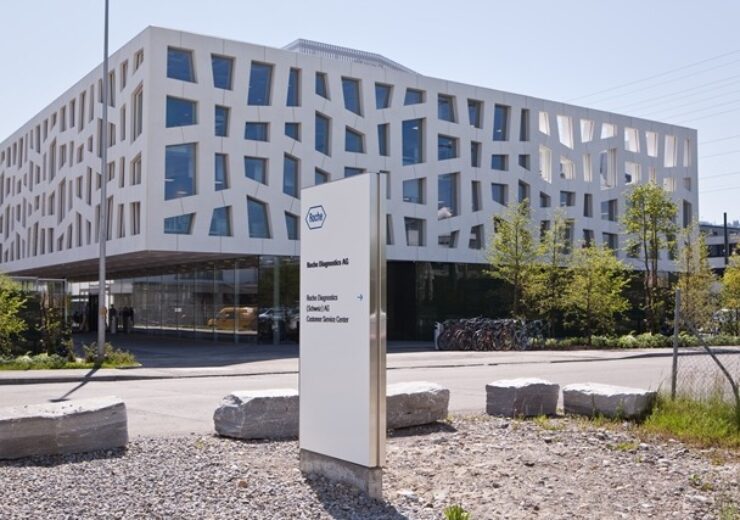The cobas PIK3CA mutation test has been designed for the detection of 17 mutations in the PIK3CA gene

Roche Diagnostics, Rotkreuz. (Credit: F. Hoffmann-La Roche Ltd)
Roche has introduced cobas PIK3CA mutation test for patients with advanced or metastatic breast cancer in the CE mark accepting countries.
Earlier, the company offered in vitro diagnostic (IVD) test as research use only (RUO).
The PIK3CA mutations are linked with tumour growth, resistance to endocrine treatment and poor overall prognosis in advanced or metastatic breast cancer.
Roche’s cobas PIK3CA mutation test, a real-time PCR test, facilitates the qualitative detection and identification of 17 mutations in exons 2, 5, 8, 10, and 21 in the gene encoding the catalytic subunit of PIK3CA in DNA isolated from formalin-fixed paraffin-embedded tissue (FFPET).
The cobas PIK3CA mutation test has been designed with an aim of determining patients with metastatic breast cancer whose tumours harbour these mutations.
The mutation test, which offers automated results, has the potential to process up to 30 samples per run on cobas z 480 analyser.
Roche’s cobas DNA sample preparation kit is used to process specimens and isolate genomic DNA from FFPET human specimens.
The cobas PIK3CA mutation test will deliver results within eight hours using a standardised workflow.
Roche Diagnostics CEO Thomas Schinecker said: “Nearly two million women are diagnosed with breast cancer each year, and an estimated half a million could harbour a PIK3CA mutation. If correctly identified, some of these women may benefit from targeted therapy.
“We are pleased to offer the cobas PIK3CA Mutation Test CE-IVD, enabling clinicians to accurately and quickly manage their breast cancer patients.”
In September this year, Roche introduced its Elecsys Anti-SARS-CoV-2 S antibody test in the CE mark accepting markets.
The Elecsys Anti-SARS-CoV-2 serology test facilitates the quantitative measurement of antibodies in people who were exposed to the severe acute respiratory syndrome coronavirus 2 (SARS-CoV-2).
